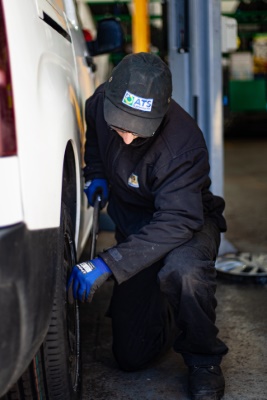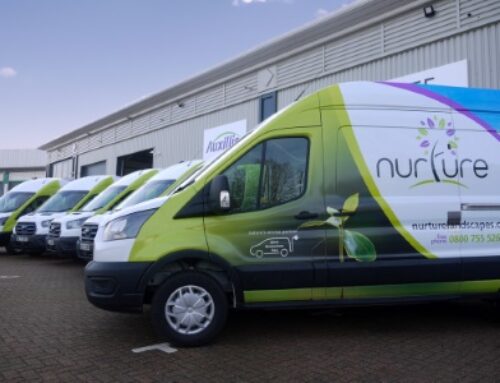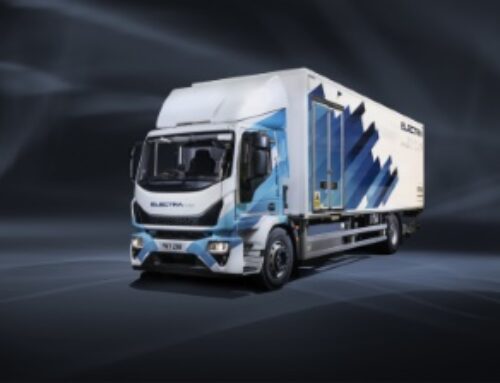Keeping fleets rolling as recession fears bite
 Mark Holland of ATS Euromaster discusses the rising impact of the cost of living, and the role tyre services can play in supporting operators
Mark Holland of ATS Euromaster discusses the rising impact of the cost of living, and the role tyre services can play in supporting operators
Covid-19 brought about a dramatic increase in online delivery services. People want what they want and they want it now, initiating a rise in 24/7 home deliveries.
Couple this with the relentless cost-of-living crisis that is forcing people, and businesses, to look for ways to cut costs and ease financial constraints, and the amalgamation of the two could prove detrimental to fleets and their on-road safety.
In response, we recommend fleets invest in an inspection service that can help support them in keeping their vehicles safe and roadworthy.
ATS Euromaster has first-hand experience of the rise in home delivery operators and their fleets, as this new delivery service culture is having an impact on our business.
Since the onset of the pandemic, the expectations of the market have moved on from what they once were and are changing rapidly. People want the service to come to them – and so do the very vans providing the delivery service.
For this reason, demand for our mobile tyre service has significantly increased and continues to do so at a rapid rate.
And at the speed we’re seeing demand increasing, we are expecting to be carrying out 25 per cent more mobile tyre jobs in 2023 and 10 per cent more in 2024.
I also believe the change is partly cost-driven, as fleets double shift vans and look to minimise downtime in order to maximise asset usage. Every hour a van is off road costs the operator, and this cost is increasing year-on-year for many of their customers. It is a trend which I think will continue to increase over time.
As mobile tyre jobs continue to increase, coinciding with the ever-developing home delivery service, tyre safety is our top priority. It is imperative that fleets invest in a tyre specialist to help support their vehicle’s needs.
A fleet inspection service can take a proactive approach to keeping customers’ vehicles moving safely and efficiently, maximising uptime and minimising costly unexpected expenditure. The proactive approach means fleets reduce the risk of emergency breakdown situations.
Our fleet inspection services support the busy fleet manager, putting a focus on tyre health for your whole fleet. The service identifies issues from worn to illegal tyres and punctures through to remedial action such as puncture repair and replacement.
As a result, fleets are better able to meet their duty of care responsibilities as well as limit vehicle downtime – which is a plus for all home delivery fleets right now and the huge pressure they are facing to perform efficiently.
Due to the increased demand for 24/7 delivery services, we are seeing more and more fleets experience issues such as low tyre pressure as they aim to minimise downtime and, let’s say, overwork vehicles to achieve their goals.
The current financial crisis means all drivers need to continue to work, but road safety is of the utmost importance. It’s imperative fleet managers do not lose sight of that.
Underinflated tyres not only incur additional running costs (which we estimate as between 3-10 per cent depending on the degree of underinflation) but also put the driver’s safety at risk. Fleet managers have a duty of care to their drivers, which must be adhered to.
Fleet inspection services will provide fleet managers with a regular vehicle health check so that they can ensure tyre safety all year round.
The additional running costs equate to a significant loss on fuel and can change the driving quality of a vehicle, which places extra driving demands on the driver as well. Properly inflated tyres will support longer life and reduce running costs, so it is of the utmost importance to maintain tyre pressure, especially at this time when fleet SMR budgets are under pressure.
It is imperative that fleets get comprehensive tyre checks, such as depth checks and recordings of tyre wear and damage to gain an overall tyre health check. Again, MasterCare, the fleet inspection service, will be able to provide fleets with a complete fleet analysis and recommend any work that may be required.
And as fleets continue to battle to maintain their tyre (and drivers’) safety, we have seen an even more worrying trend developing as the cost-of-living crisis takes hold. Tradespeople and the self-employed are choosing to buy part-worn tyres as a cheaper alternative.
The retailing of part-worn tyres is not illegal and is regulated under The Motor Vehicle Tyres (Safety) Regulations 1994 (reg.7.), which is part of the Consumer Protection Act, but there is no governance over the quality of the tyres and whether they have gone through any sort of internal structural trauma even if they appear outwardly good value. Meaning, there is no guarantee they are safe for use, which puts the driver, other motorists, road users and pedestrians at risk.
The pressure to cut costs cannot undermine the safety of drivers and other road users. Tyres are the only point of contact between the vehicle and the road providing grip, stability and stopping power.
If a van needs new tyres, we recommend a budget tyre option over part-worn and preferably an all-seasons tyre from a reputable manufacturer.
Tradespeople may also consider investing in an inspection service as it will be cost-effective in the long-run and can help advise them on the best options within their budget in order to keep their vehicle roadworthy.
We know from the vehicles we are inspecting that pressure on fleets for greater 24/7 run time is creating additional tyre wear. Conscious of the effects of the cost-of-living crisis, fleet inspection services will in fact try to prolong the life of the tyre wherever possible: for example, spinning tyres, where tyre specialists switch the outside of the tyre wall to the inside – which is a significant cost saver for fleets.










